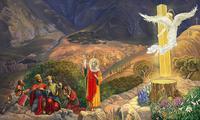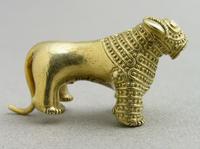The Kingdom of Iberia, an ancient realm in what is now Georgia, played a significant role in the regional dynamics of the Caucasus from its formation in the 4th century BC until its eventual decline in the 5th century AD. This kingdom, also referred to simply as "Iberia," was known for its unique cultural identity, strategic geographical position, and its interactions with neighboring empires and civilizations.
Formation and Early History
Iberia emerged in the 4th century BC, with its origins rooted in the cultural and political milieu of the Caucasus region. The kingdom was established following the fragmentation of the Achaemenid Empire, which created a power vacuum in the area. Early Iberian society was influenced by various cultures, including Persian, Hellenistic, and later Roman. The kingdom's first known king, Parnavaz I, is credited with founding the Parnavazid dynasty and establishing a centralized monarchy.
Territorial Expansion and Governance
Under the rule of Parnavaz I and his successors, the Kingdom of Iberia expanded its territory. It encompassed areas that are now part of modern-day Georgia, with its capital at Mtskheta. The kingdom's governance structure was a blend of monarchical and feudal systems, with regional princes (eristavis) playing crucial roles in local administration. This period saw the development of a legal code and the minting of the kingdom's own coinage, reflecting a degree of economic autonomy and political stability.
Cultural Developments and Religion
Culturally, Iberia was a melting pot of influences. The early adoption of Christianity in the 4th century AD under King Mirian III marked a significant shift. The conversion established Orthodoxy as the state religion, profoundly influencing Iberian culture, art, and architecture. The introduction of the Georgian alphabet, attributed to the period of King Pharnavaz, facilitated the growth of a distinct literary tradition.
Relations with Rome and Persia
Iberia's strategic location made it a point of interest for both the Roman and Persian Empires. The kingdom often found itself in the midst of power struggles between these two great empires. During various periods, it became a Roman client state or a vassal under Persian influence. These relationships brought about military, economic, and cultural exchanges, significantly impacting Iberian society.
Socio-Economic Structure
The socio-economic fabric of Iberia was characterized by a feudal system, with a clear hierarchy of nobility, clergy, and common people. Agriculture was the backbone of the economy, supported by viticulture, which has a long tradition in Georgia. Trade routes passing through the kingdom facilitated commerce, particularly with neighboring regions. The Silk Road, which connected the East and West, also played a part in Iberia's economic activities, especially in trading silk, spices, and other valuable goods.
Iberia maintained a formidable military, essential for its survival and territorial integrity. Throughout its history, the kingdom engaged in various conflicts, defending against invasions and asserting its dominance in the Caucasus. The Iberian army, which included cavalry and infantry units, was known for its organization and fighting techniques, often influenced by both Roman and Persian military traditions.
Decline and Legacy
The decline of the Kingdom of Iberia began in the 5th century AD, precipitated by internal strife, external invasions, and the weakening of central authority. Despite its decline, the kingdom's legacy lived on in the region's cultural and political landscape. The unification of various Georgian principalities in the following centuries can be seen as a continuation of the Iberian heritage, laying the groundwork for the future development of the Georgian state.
Art and Architecture
The art and architecture of Iberia were profoundly influenced by its conversion to Christianity. This era saw the construction of many churches and monasteries, some of which stand to this day. The architectural style combined local traditions with Byzantine influences, resulting in unique designs that featured elaborate stone carvings and frescoes. The Jvari Monastery and Svetitskhoveli Cathedral in Mtskheta are prime examples of this period's architectural achievements.
Iberia's Linguistic and Literary Contributions
The linguistic landscape of Iberia was predominantly marked by the Georgian language, part of the Kartvelian language family. The development of the Georgian script, attributed to the early period of the kingdom, was a significant cultural milestone. This script enabled the transcription of religious texts and the creation of a unique literary tradition. The “Martyrdom of the Holy Queen Shushanik,” one of the earliest known works in Georgian literature, dates back to this era.
External Influences and Syncretism
Iberia’s position as a crossroads between Europe and Asia exposed it to diverse cultural influences. These external interactions led to a degree of syncretism, where elements of Persian, Roman, Greek, and later Byzantine cultures were assimilated into the local customs. This syncretism is evident in various aspects of Iberian society, from art and architecture to religious practices and governance.
Archaeological Insights
Archaeological excavations in Iberia have unearthed significant findings that provide insights into the kingdom's way of life. Discoveries include remnants of fortifications, religious structures, and artifacts like pottery, jewelry, and coins. These findings help historians piece together the kingdom's socio-political structure, economic activities, and cultural practices.
Iberia’s Role in Regional Politics
Iberia played a crucial role in the politics of the Caucasus and the wider region. Its strategic location made it a buffer state and a mediator between the Roman and Persian empires. The kingdom's ability to navigate these complex political dynamics is a testament to the diplomatic acumen of its rulers.
Enduring Influence on Georgian Identity
The Kingdom of Iberia's most enduring legacy is its contribution to the formation of Georgian national identity. The kingdom laid the foundations for the Georgian state and culture, influencing the region's historical trajectory. Its adoption of Christianity and development of a distinct cultural identity are pivotal in understanding the evolution of Georgia as a nation.
Conclusion
The Kingdom of Iberia, a significant historical entity in ancient Georgia, played a vital role in the region’s cultural, political, and religious development. Its strategic location, diverse cultural influences, and enduring legacy have left an indelible mark on the history of Georgia and the Caucasus. The kingdom's story, from its formation to its decline, is a fascinating chapter in the tapestry of world history, offering insights into the complexities of ancient statecraft, culture, and regional dynamics.

 Mtskheta
Mtskheta
 Jvari Monastery
Jvari Monastery
 Svetitskhoveli Cathedral
Svetitskhoveli Cathedral
 Conversion to Christianity in Georgia
Conversion to Christianity in Georgia
 Kingdom of Colchis
Kingdom of Colchis
 Hellenistic Influence in Georgian History
Hellenistic Influence in Georgian History
 Roman Influence in Georgia
Roman Influence in Georgia




